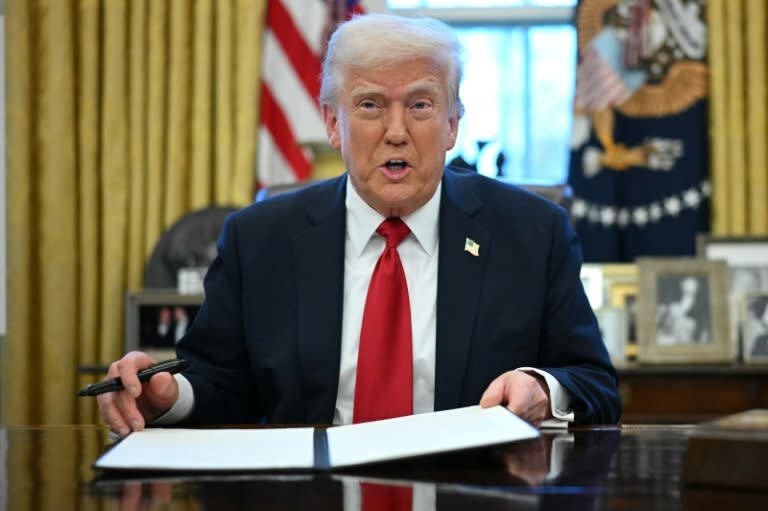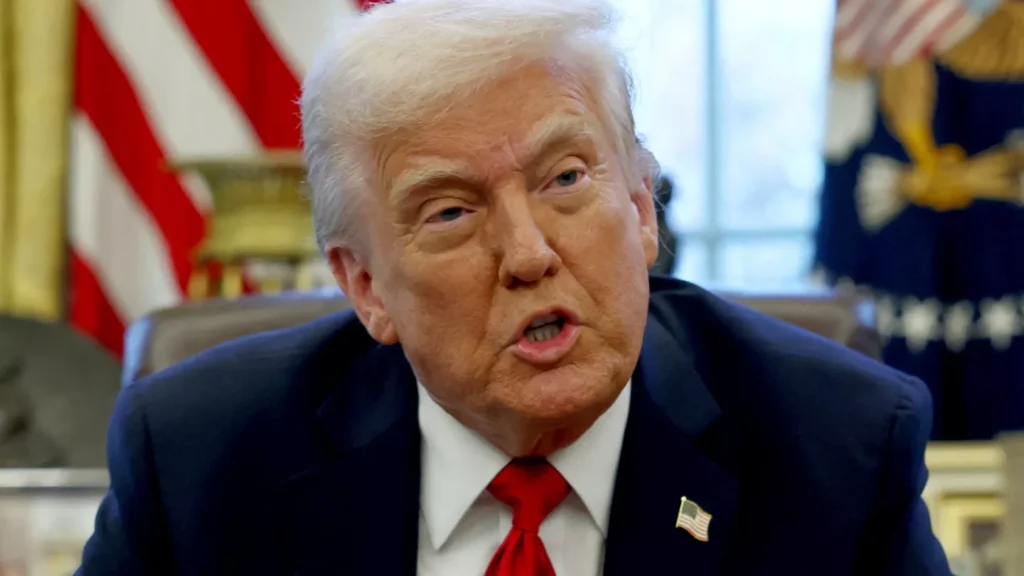News
US President Trump Rolls Out 25% Tariff on Car Imports, Sparking Global Reactions
Published
9 months agoon
By
M N Ridwan
US President Donald Trump has introduced a new 25% tariff on cars and car parts imported into the United States, a move that could escalate the ongoing global trade war.
The tariffs, which are set to take effect on April 2, will impose substantial costs on businesses bringing vehicles into the country, and a similar tax on parts will be rolled out in May.
In his announcement, Trump argued that the tariffs would benefit the US car industry by encouraging job creation and investment.
However, industry analysts warn that the measure could lead to temporary shutdowns in US car production, raise prices for consumers, and damage relations with key trading partners.
The US imports roughly eight million cars annually, worth an estimated $240 billion. Mexico, South Korea, Japan, Canada, and Germany are the primary suppliers of these vehicles, and the new tariffs could disrupt global supply chains, affecting both manufacturers and consumers.
Many US car companies operate in neighboring countries, particularly Mexico and Canada, taking advantage of free trade agreements in place between the nations. These new tariffs threaten to upend this balance, complicating international trade.
General Motors’ stock dropped by 3% following Trump’s announcement, and other car manufacturers like Ford also saw a decline in their shares.

While the US government has said the tariffs will apply to finished cars and parts from all countries except for Mexico and Canada (due to an exemption while a system is set up), the automotive industry remains uneasy.
Analysts estimate that the cost of a car could increase by thousands of dollars as a result of the new taxes.
Japan’s government has expressed concern, with Prime Minister Shigeru Ishiba stating that Japan would explore all options in response. Similarly, Canada has strongly criticized the move, with Prime Minister Mark Carney calling the tariffs a “direct attack” on the country’s car industry.
The European Union is also closely monitoring the situation. European Commission President Ursula von der Leyen emphasized that the tariffs would harm both businesses and consumers and that the EU would look for negotiated solutions to protect its economic interests.
As this trade battle continues to unfold, the long-term impacts on global trade, car prices, and international relations remain to be seen.





